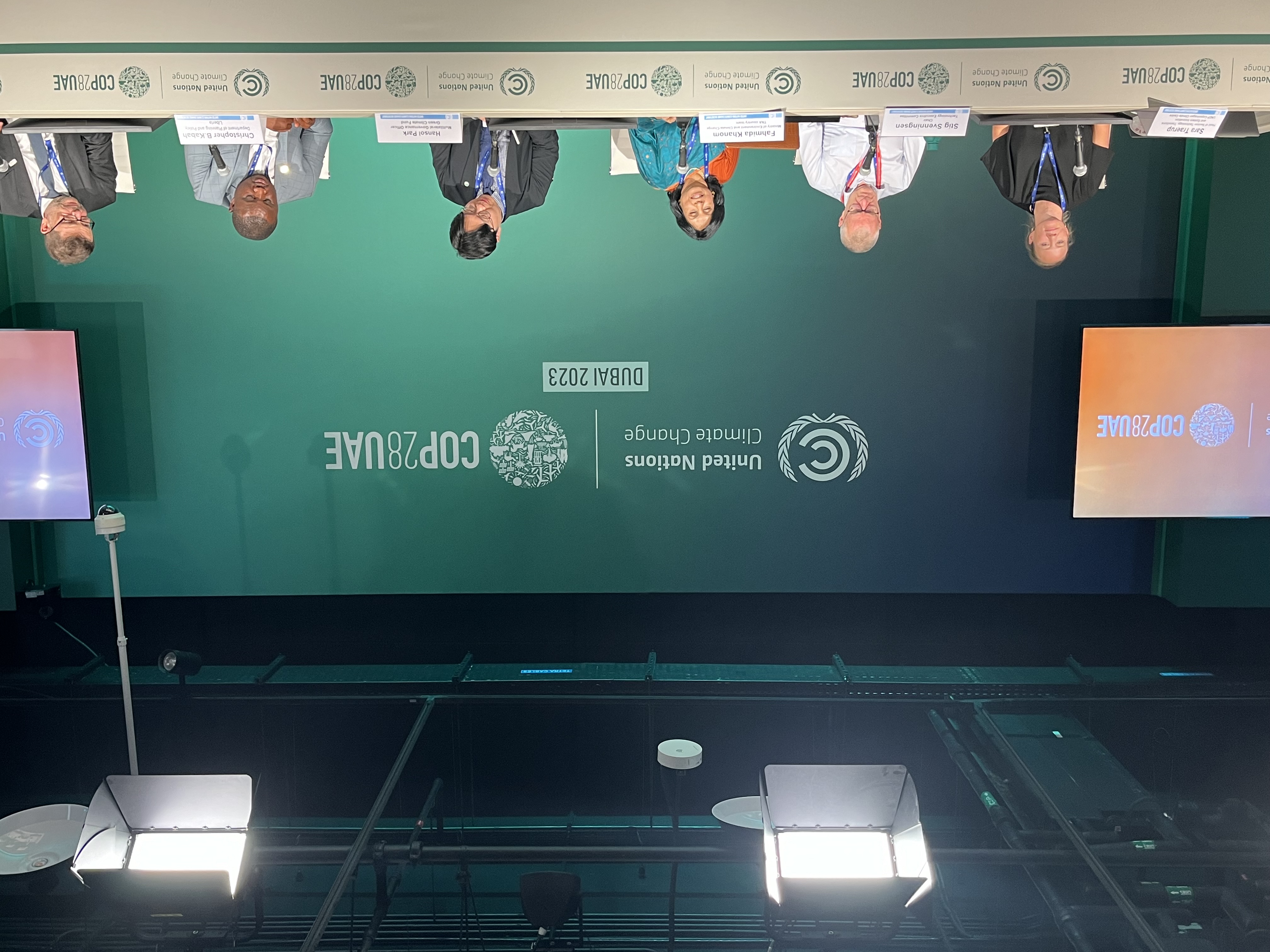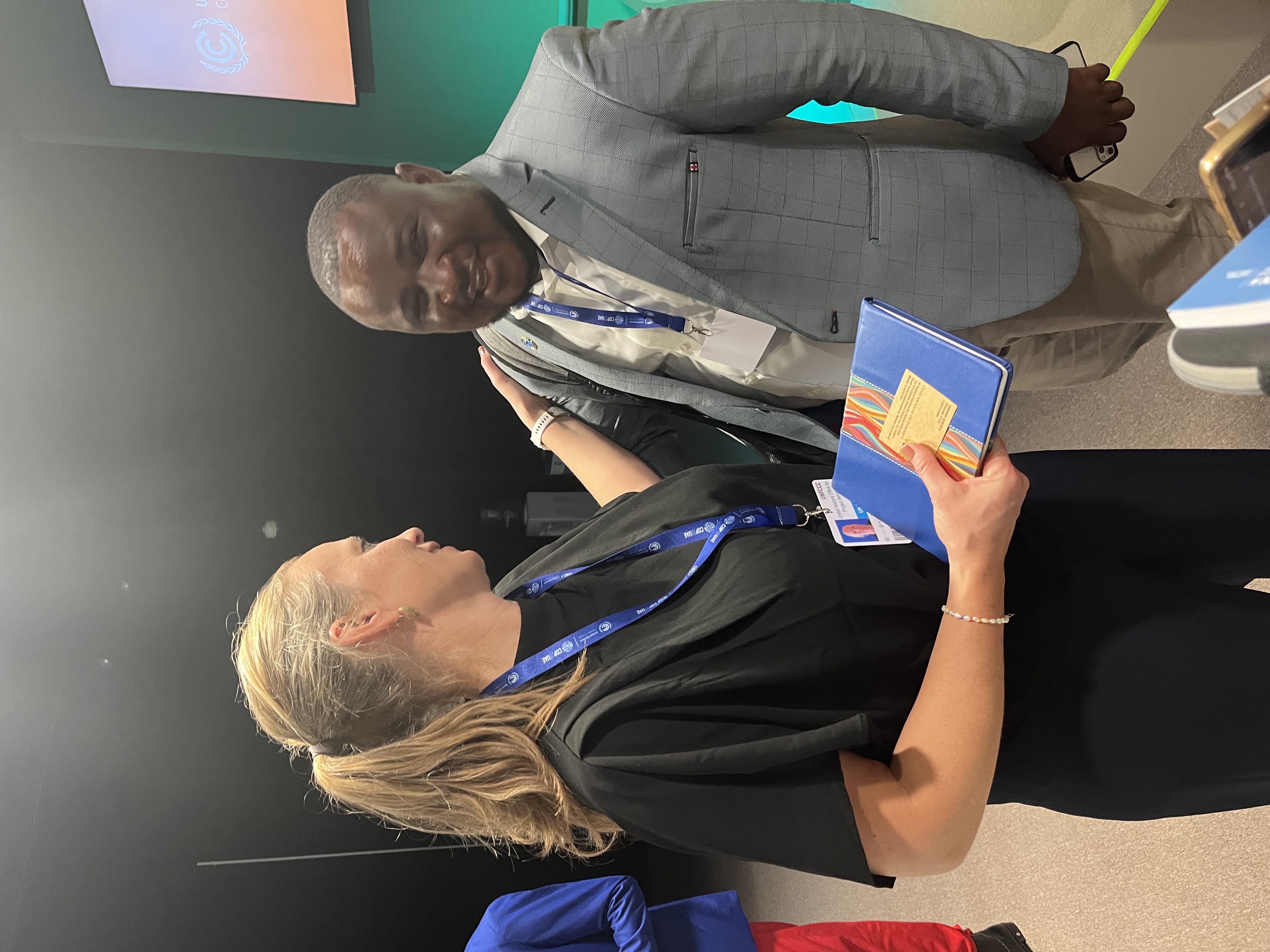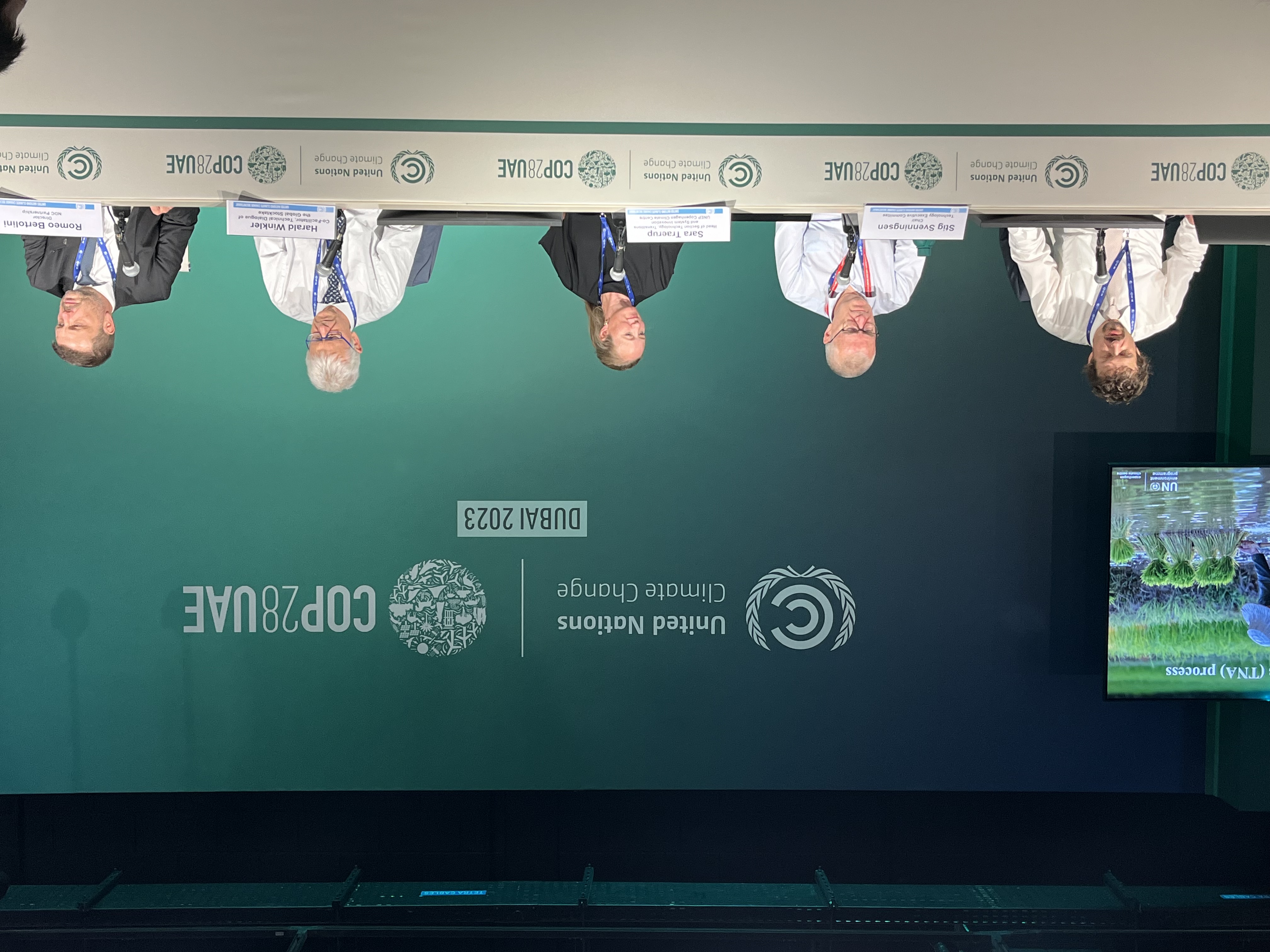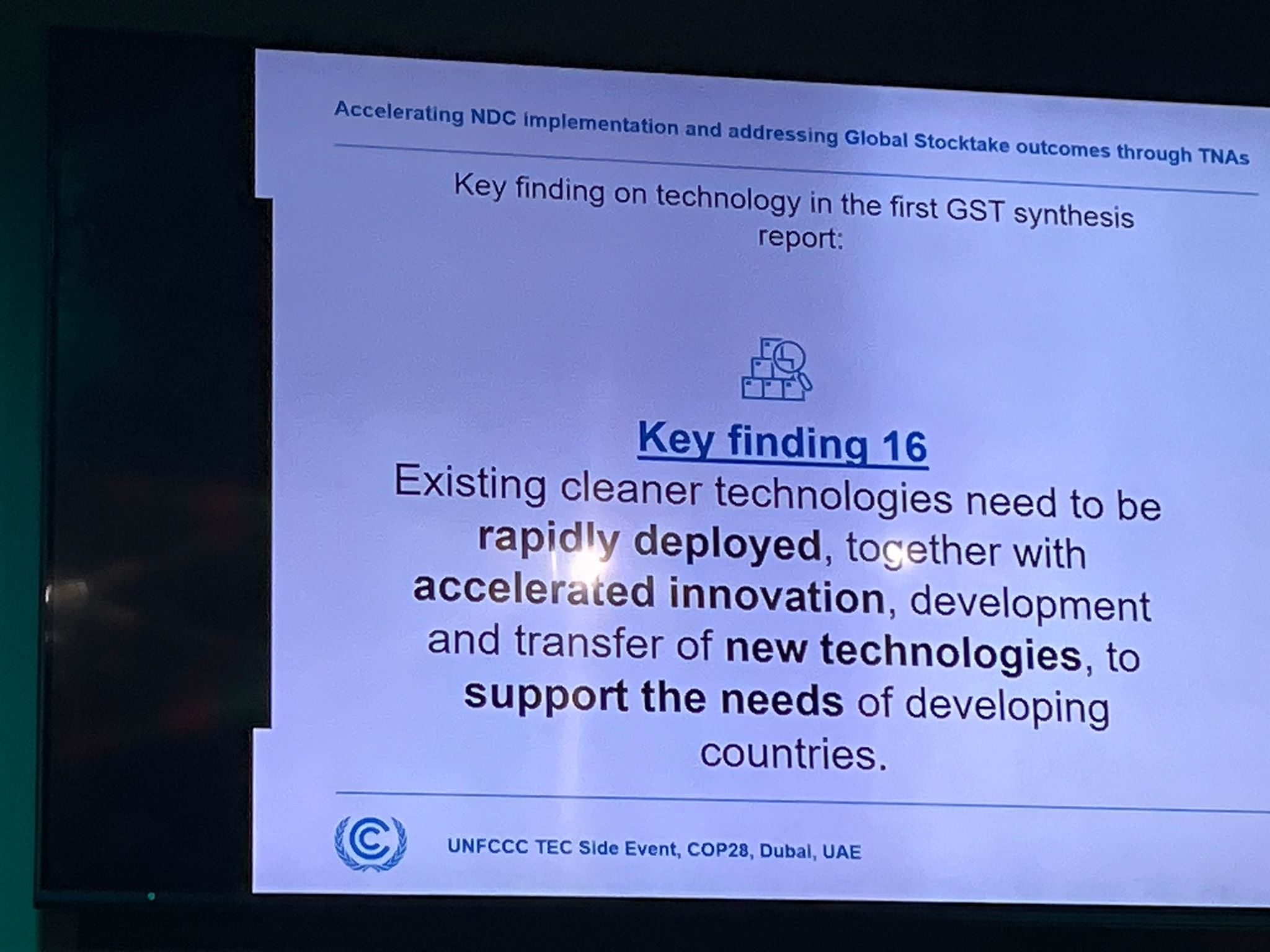Climate Technology is a key part of the global stocktake, and the alignment of Technology Needs Assessments (TNAs) with climate commitments was the hot topic at an official COP28 side event this week.
The Global Stocktake is a crucial part of this year’s COP28 as it will assess collective progress towards the Paris Agreement’s long-term goals.
The “Accelerating NDC Implementation and Addressing Global Stocktake Outcomes Through TNAs” event focused on the integration of TNAs with Nationally Determined Contributions (NDCs) to enhance the Global Stocktake process, enabling countries to effectively identify, prioritize, and implement climate technologies.
Opened by Stig Svenningsen, Chair of the UNFCCC Technology Executive Committee, and Sara Trærup, Head of Technology, Transitions and System Innovation at UNEP Copenhagen Climate Centre, the event started out by setting the scene and introducing the work of UNFCCC and TNAs.
Advancing the response to climate change
The panel, consisting of experts from international climate organizations and national implementing ministries, highlighted the crucial role of aligning NDCs with the TNA process to support the Global Stocktake.
This alignment not only strengthens the effectiveness of NDCs but also promotes international collaboration, capacity building, and resource mobilization to foster the deployment of climate technologies, ultimately advancing the global response to climate change.
Collaboration and alignment
Romeo Bertolini, director of the NDC Partnership pointed out, that coordination of technology and climate action efforts is crucial.
“We all know what we are up against. NDCs, TNAs and other planning tools only makes sense if they are integrated in the countries’ development plans and are being financed. Plug in and alignment is so important,” he said during the event.
While taking the audience through the GST process of 170.000 pages of inputs and 52 hours of discussion so far, Harald Winkler, Co-Facilitator of the Technical Dialogue of the Global Stocktake, highlighted the importance of technology.
“Technology adoption is uneven. International cooperation is really vital, as well as innovation and research for both migration and adaptation,” he pointed out, adding that strategic collaboration on technology is a must, if we are to reach the Paris Agreement goals.
Focused on country needs and experiences
While NDCs are pivotal in the Paris Agreement, experts from Liberia and Bangladesh highlighted challenges faced by developing countries in fulfilling their NDC targets, largely due to limited access to advanced climate technologies and financial resources.
Fahmida Khanom from the national TNA team and Ministry of Environment Forest and Climate Change in Bangladesh and Christopher Kabah from the Environmental Protection Agency of Liberia took the participants through their TNA Process – highlighting the importance of a participatory country led process and the need for finance for implementation.
Acknowledging the requirement for finance Hansol Park, Multilateral Governance Officer at the Green Climate Fund, announced a new project cycle to address countries’ needs.
The event concluded with Senior Director of Programmes Coordination at the UNFCCC Danielle Violetti stressing the critical importance of enhanced collaboration among stakeholders for successful climate technology implementation and effective achievement of NDC targets.



